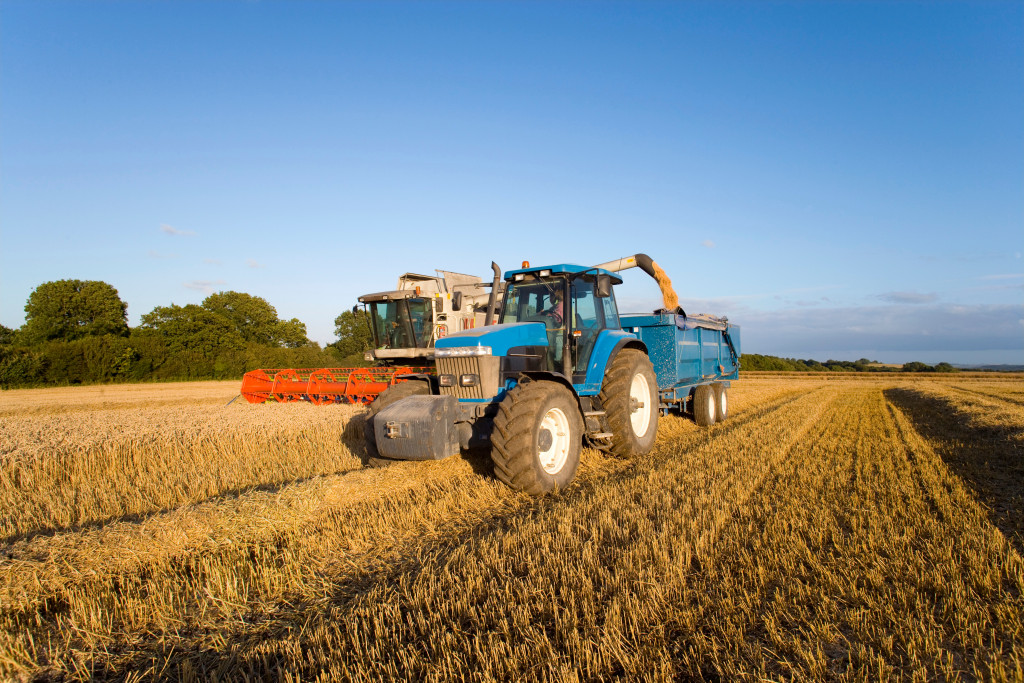- The number of US farms has slightly decreased, with an average size of 446 acres per site.
- Starting a farming business requires market research, understanding trends, and learning from other farmers.
- Soil health is crucial for better yields, and sustainability practices can help achieve it.
- A financial plan is necessary to start a farming business, including evaluating costs and researching government grants.
- Investing in high-quality farming equipment can save time and money by automating and streamlining tasks.
Over the past four decades, the number of US farms has steadily declined, yet not as quickly as one might assume. In 2022, there were 2 million US farms compared to 2.2 million in 2007 – a reduction of 10 percent overall – and 893 million acres used for farming purposes; this marks a decline from 915 million in 2012 but with an average farm size still comparable to that recorded in the 1970s at 446 acres per site on average.
The situation makes the industry an appealing option for entrepreneurs looking to start a new business. Farming is a complex and challenging field, but it can be a highly rewarding career for those with a love of the land and an entrepreneurial spirit. From planning and land preparation to crop selection and marketing, starting a farming business requires knowledge, skill, and hard work. This blog provides tips for those considering starting a farming business.

Conduct Market Research
Before diving into a farming business, conduct proper market research to identify the demand and competition for your products. This research will enable you to decide on the best crops to grow and the best strategies to implement for profitability.
Trends and Innovation
Learn about the market trends and innovation in agriculture to ensure you remain competitive and up-to-date. Consider visiting your local extension office or agricultural department to speak with experts in the industry. They may be able to offer valuable advice on crop selection and farming methods.
Learn From Others Experiences
Talk to current farmers to learn about their experiences and challenges regarding their operations. Having an understanding of these elements is essential for a successful farming business.
Focus on Soil Health
Whether you plan to grow fruits, vegetables, or grains, your soil’s health is vital to your farming business’s success. Conduct soil tests to determine the nutrients lacking in your soil, and invest in good quality fertilizers or organic soil amendments to improve soil health.
Better Yields
Healthy soil results in better yields, flavor, and shelf life of your produce. To keep your soil healthy, consider implementing sustainable practices such as crop rotation, green manures, and natural weed control. You can also use cover crops – plants are grown specifically to improve soil structure and fertility or prevent erosion.
Reduce Compaction
Finally, reduce soil compaction by avoiding heavy machinery or animals on wet ground. With these steps, you can grow robust and healthy crops that fetch higher prices.
Have a Financial Plan
Starting a farming business requires significant capital, and you need a financial plan to guide your budgeting and investment decisions. Evaluate the cost of land purchase, equipment, seeds, and labor. Ensure you have sufficient funds to meet your financial obligations.
Consult a Financial Advisor
You may need to consult a financial advisor or lender to evaluate your creditworthiness and obtain a loan. Additionally, consider the potential risks associated with farming and plan for contingencies such as drought, disease, floods, or other natural disasters.
Research Grants
Finally, research available government grants and subsidies to help offset some of your costs. With a solid financial plan, you can increase the likelihood that your farm will succeed in the long term.

Invest in Equipment
Starting a farming business can be daunting, and one of the most important aspects to consider is the type of equipment you’ll need. Investing in high-quality farming equipment is crucial to the success of your business, as it can significantly impact both your yield and your bottom line.
Automate and Streamline
One of the main advantages of investing in farming equipment is that it allows you to automate and streamline many of the tasks involved in running a farm. This includes everything from planting and harvesting to irrigation and fertilization. With the right equipment, you can significantly reduce the required manual labor, which in turn can save you time and money.
Investing in farming equipment isn’t always cheap and can represent a significant financial commitment for your business. In this situation, you should consider looking for affordable used tractors for sale. Looking for a reputable supplier is essential so you can buy with confidence.
Starting a farming business requires careful planning, hard work, and financial investment. You can build a thriving farming business with the right market research, cultivate soil health, and invest in equipment. Remember to remain innovative, flexible, and willing to adjust to changing market trends. At the same time, maintain a commitment to producing high-quality produce and establish relationships with buyers, processors, and distributors. By following these tips, you will be well on your way to success in the agriculture industry.



